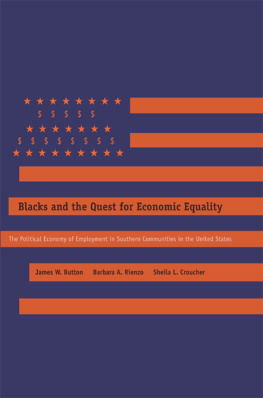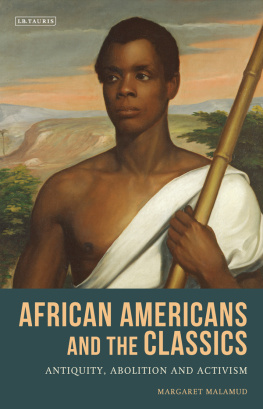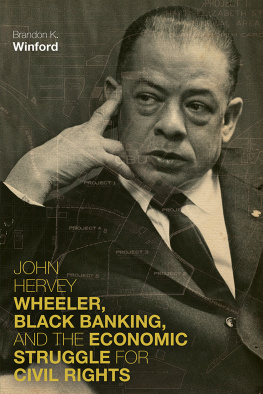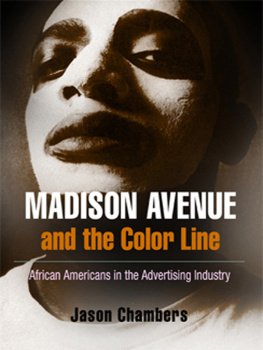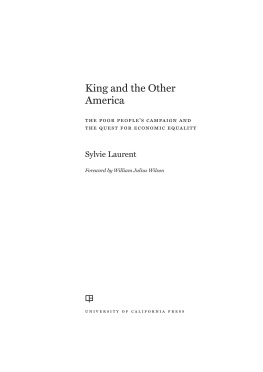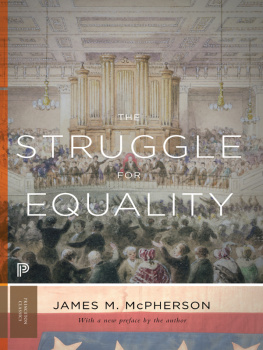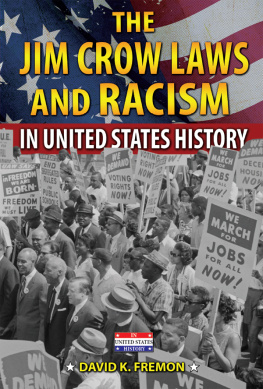Blacks and the Quest for Economic Equality
Library of Congress
Cataloging-in-Publication Data
Button, James W., 1942
Blacks and the quest for economic equality : the political economy of employment in southern communities in the United States / James W. Button, Barbara A. Rienzo, Sheila L. Croucher.
p. cm.
Includes bibliographical references and index. Summary: An analysis of economic issues and political conditions for black Americans, based on quantitative and qualitative data from six Florida citiesProvided by publisher.
ISBN 978-0-271-03555-0 (cloth : alk. paper)
1. African AmericansEmploymentFlorida.
2. African AmericansFloridaEconomic conditions.
3. FloridaRace relations.
I. Rienzo, Barbara Ann.
II. Croucher, Sheila L.
III. Title. HD8081.A65B87 2009
331.6'396073075dc22 2009006740
Copyright 2009
The Pennsylvania State University
All rights reserved
Printed in the United States of America
Published by
The Pennsylvania State University Press,
University Park, PA 16802-1003
The Pennsylvania State University Press
is a member of the
Association of American University Presses.
It is the policy of The Pennsylvania State University Press to use acid-free paper. This book is printed on Natures Natural, containing 50% post-consumer waste, and meets the minimum requirements of American National Standard for Information SciencesPermanence of Paper for Printed Library Material, ANSI Z39.481992.
To our grandchildren, who we hope will create and live in a more egalitarian society.
~ J.B. and B.R.
And to the many women and men, present and past, whose courageous quests for equality have created a better world for us all.
~ S.C.
CONTENTS
Thirty years ago, I began the exploration of race, politics, and change in six southern (Florida) communities. In Blacks and Social Change: Impact of the Civil Rights Movement in Southern Communities (Princeton University Press, 1989), I detailed transformations that resulted following the 1960s political mobilization of blacks, including the election of African Americans to public office, improvements in municipal services, and the desegregation of schools and public accommodations. Now, in the latest investigation of these six cities, Barbara Rienzo and I look at the issue of most importance to African Americans more recentlythe betterment of economic (primarily employment) conditions.
In my first book, I surmised that greater black political participation helped African Americans in the South by removing legal barriers, providing greater status, and enhancing basic public services such as street paving, recreation, and police protection. I also suggested, however, that the larger and more complex battle would be the quest by blacks for economic equality with whites. In the words of Martin Luther King Jr., Jobs are harder and costlier to create than voting rolls (King 1976, 6). Thus, the focus of this work is to explore the employment situation of blacks in the new millennium and the factors that have influenced how blacks are faring economically.
This study is unique in several respects. First, it blends both quantitative and qualitative data that triangulate our findings. The more than four hundred personal interviews (we completed the vast majority!) provide a rare entre into blacks and whites perspectives as they deal with the issue of race and employment within southern communities. Second, we closely look at the policies and problems not often investigated in context yet related to jobs and African Americans, including the salient issues of affirmative action, interminority competition, inequities in public education, and cultural diversity programs.
Third, this study focuses on typical communities in the South. While this region encompasses more than half the African American population, race and economics in the South are sorely neglected by both scholars and policymakers. Finally, unlike most academic tomes on race-related issues, this study concludes with a discussion of prescriptions for change that, based on our findings, have the best chance of improving the economic status of African Americans through employment opportunities.
This study could not have been completed without the funding bestowed by The Russell Sage Foundation. For this, we are most grateful. We would also like to acknowledge the work of two graduate research assistants who assisted with a portion of the fieldwork for this study: Shannon Tynes Michael and Phil Gold.
Jim Button
May 2005
The dilemma facing blacks today is how to achieve economic parity with whites when they arent given the same opportunities or resources as whites.
Black Leader, Daytona Beach, 2001
AS THE UNITED STATES ENTERS THE NEW MILLENNIUM , race in the South continues to be the distinctively American Dilemma that Gunnar Myrdal (1944) identified sixty years ago. While African Americans have made substantial progress in politics in the South since the 1960s civil rights movement, particularly following the passage of the Voting Rights Act of 1965, similar advancements in economic have lagged behind. As historian Harvard Sitkoff (1981, 237) concluded in his investigation of the black struggle for equality since the Brown decision of 1954, A Third Reconstruction, aiming for economic justice, is imperative if civil rights are to be meaningful to the poor and unemployed, to all those [blacks] still in despair.
One of the major problems in the quest for economic equality for African Americans is that many Americans (mostly white) believe that racial equality has been achieved. According to a 2001 Washington Post/Kaiser Foundation/ Harvard University survey, 50 percent of whites think the average black is about as well off as the average white in terms of employment. However, most blacks maintain that there is a lot of discrimination against them when seeking jobs (Bobo 2001b). African Americans are more than twice as likely as whites to be employed in lower-paying, less prestigious service jobs. Blacks unemployment rate is double that of whites, and they are three times as likely as whites to live in poverty. The median income of black households is $27,000, compared with $42,000 for white households. Perhaps the most poignant economic statistic of racial disparity is total household wealththe average net worth for whites is $84,000, whereas it is approximately $7,500 for blacks (Raines 2002). In the South, blacks have traditionally occupied the lowest rung on the socioeconomic ladder and southerners in general have suffered from poverty more so than persons in other regions of the country (Scher 1997).
Racial Attitudes in the South
Another major factor that has differentiated the South from the rest of the country is white racial attitudes. Southern culture and traditions were based on the belief that blacks were inferior. Yet much has changed in the South over the past several decades since the civil rights movement of the 1960s. Indeed, some analysts have claimed that a new South has emerged in which bigotry against blacks has declined and racial prejudice exhibited by southern whites does not differ from nonsoutherners racial prejudice (Firebaugh and Davis 1988; Schuman and Bobo 1988). Other academics challenge this notion, arguing that white southerners massive shift from the Democratic to the Republican Party was due primarily to race, since blacks were joining the Democratic Party in large numbers (Carmines and Stimson 1989; Huckfeldt and Kohfeld 1989). Similarly, a recent study using unobtrusive measures of racial attitudes designed to alleviate social desirability effects found that antiblack attitudes were markedly greater in the South than the non-South (Kuklinski and Cobb 1997). While racial prejudice has declined to some degree in the South, large numbers of white southerners still harbor feelings of racial hostility. Going beyond attitudes, national audit studies in which members of different racial groups with matched qualifications applied for jobs found that blacks (and Latinos) are less likely than whites to attain an interview or to be offered a job (Fix and Struyk 1993).

